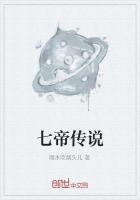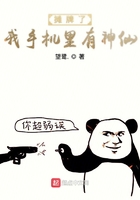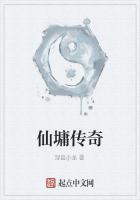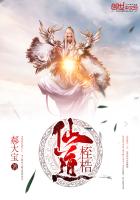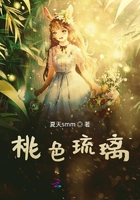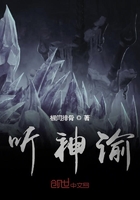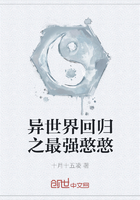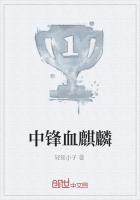艺术·真相·政治
Art, Truth & Politics
哈罗德·品特
By Harold Pinter
在1958年, 我写了下面的话:
In 1958 I wrote the following:
“在真实和非真实之间没有明确的界线,在真相和假象之间亦如此。一个事件不必非真即假;它可以是即真亦假。”
There are no hard distinctions between what is real and what is unreal, nor between what is true and what is false. A thing is not necessarily either true or false; it can be both true and false.
我(今天)仍然相信这些语气坚定的话是有意义的,仍然可以被用于以艺术探求真实性,所以作为一个作家我认同这些观点。但是作为一个公民,我却不能够。作为一个公民, 我必须询问: 何为真? 何为假?
I believe that these assertions still make sense and do still apply to the exploration of reality through art. So as a writer I stand by them but as a citizen I cannot. As a citizen I must ask: What is true? What is false?
在戏剧中,真相非常难以捕捉。你绝不可能准确地找到它,却又不自主的去寻找。很清楚,寻求是驱使事物发生的动力。寻求是你的任务。经常发生的是你在黑暗中被真理绊住了,撞在上面或者将瞥见那同真理相对应着的形象或者形状,但当时你却没有意识到你已经找到真理了。其实真正的理是绝不可能在戏剧艺术中作为一种真理被发现的。有很多这样的理。这些真理互相挑衅,彼此排斥,相互指摘,无视对方,并且互相取笑,以盲目的方式对待彼此。有的时候你觉得在某个时刻真理在手了,可它又从手指缝之间滑落下去,丢失了。
Truth in drama is forever elusive. You never quite find it but the search for it is compulsive. The search is clearly what drives the endeavour. The search is your task. More often than not you stumble upon the truth in the dark, colliding with it or just glimpsing an image or a shape which seems to correspond to the truth, often without realising that you have done so. But the real truth is that there never is any such thing as one truth to be found in dramatic art. There are many. These truths challenge each other, recoil from each other, reflect each other, ignore each other, tease each other, are blind to each other. Sometimes you feel you have the truth of a moment in your hand, then it slips through your fingers and is lost.
经常有人问我是如何写作那些剧本的。我不知道,我也无法总结我写的戏,只能说这是所发生过的。那是他们说过的话。那是他们做下的事。
I have often been asked how my plays come about. I cannot say. Nor can I ever sum up my plays, except to say that this is what happened. That is what they said. That is what they did.
多数戏开始于一句话、一个词或者一个形象。这个词经常跟随着一个形象。我来举两个例子,它们这会儿正好来到脑子里,接着是一个形象,然后是我。
Most of the plays are engendered by a line, a word or an image. The given word is often shortly followed by the image. I shall give two examples of two lines which came right out of the blue into my head, followed by an image, followed by me.
这两出戏是《回家》和《老时光》。《回家》的第一句话是“你把剪刀弄哪儿去啦?”,《老时光》的开场白是“深色的”。
The plays are The Homecoming and Old Times. The first line of The Homecoming is “What have you done with the scissors?” The first line of Old Times is “Dark”.
对这二者我都没有任何更多的信息。
In each case I had no further information.
在前者,显然是有人在找一把剪刀,并向另一个人查问剪刀在哪里,他怀疑很可能是另一个人偷了它。但是我知道他说话的对象根本对剪刀不感兴趣, 对问题本身也不在意。
In the first case someone was obviously looking for a pair of scissors and was demanding their whereabouts of someone else he suspected had probably stolen them. But I somehow knew that the person addressed didn’t give a damn about the scissors or about the questioner either, for that matter.
“深色的”这个词我用来描述某人的头发, 一个女人的头发, 是对一个问题的回答。在这两种情景下, 我发现我自己被迫继续下去。视觉上所发生的是一个极其缓慢的淡化, 从阴影到光亮。
“Dark” I took to be a description of someone’s hair, the hair of a woman, and was the answer to a question. In each case I found myself compelled to pursue the matter. This happened visually, a very slow fade, through shadow into light.
我总是在开始一出戏剧的时候将人物定为A、B和C。
I always start a play by calling the characters A, B and C.
在《回家》这出戏里,我看见一个人走进空荡荡的房间,质问那个坐在丑陋的沙发里读报纸上赌马经的年轻人。我怀疑A是父亲,B是他的儿子,但我没有证据。好在这不久就被证实了,这个B(后来成为兰尼)对A说(后来成为麦克斯):“爸,我是不是能换个话题? 我想问点事儿。我们刚才吃的晚餐叫什么来着? 你管它叫什么来着? 你为什么不买只狗呢? 你是狗厨师。真的, 你以为你是在为很多狗做饭。”既然B管A叫“爸”,那对我来说他们是父子关系就是合理的假设了。很清楚A是个厨师,而且他的厨艺好像不怎么样,这是否意味着没有母亲这个角色呢? 我不知道。但是, 当时我告诉我自己,我们的开始绝不可能知道我们的终结。
In the play that became The Homecoming I saw a man enter a stark room and ask his question of a younger man sitting on an ugly sofa reading a racing paper. I somehow suspected that A was a father and that B was his son, but I had no proof. This was however confirmed a short time later when B (later to become Lenny) says to A (later to become Max), “Dad, do you mind if I change the subject? I want to ask you something. The dinner we had before, what was the name of it? What do you call it? Why don’t you buy a dog? You’re a dog cook. Honest. You think you’re cooking for a lot of dogs.” So since B calls A “Dad” it seemed to me reasonable to assume that they were father and son. A was also clearly the cook and his cooking did not seem to be held in high regard. Did this mean that there was no mother? I didn’t know. But, as I told myself at the time, our beginnings never know our ends.
关于“深色的”这个词是这样产生的:一扇巨大的窗户,傍晚的天空,一个男人,A(后来成为迪力), 和一个女人, B(后来成为凯特), 坐着饮酒。“胖子还是瘦子?”男人问道。他们在谈论谁?然后我看见站在窗边的女人,C(后来成为安娜)在另一种光线下,她背对着他们,她的头发是深色的。
“Dark.” A large window. Evening sky. A man, A (later to become Deeley), and a woman, B (later to become Kate), sitting with drinks. “Fat or thin?” the man asks. Who are they talking about? But I then see, standing at the window, a woman, C (later to become Anna), in another condition of light, her back to them, her hair dark.
这是个奇特的时刻,这个时刻正在被创造的人物此刻之前还不存在。接下来的是无规则的、不确定的,甚至是幻觉的,尽管有的时候它可以是不可阻挡的雪崩。作者的位置是古怪的。一方面他并不为戏剧中的人物所欢迎,这些人物抗拒他,和他们在一起很不容易,无法定义他们,你肯定不能对他们发号施令。在一定程度上你同他们做着永无终结的游戏,猫捉老鼠,瞎子识人,捉迷藏。但最终你发现你手上有了有血肉的人,他们有他们自己的意愿和感情,通过角色存在着,你不能改变、操纵或者歪曲他们。
It’s a strange moment, the moment of creating characters who up to that moment have had no existence. What follows is fitful, uncertain, even hallucinatory, although sometimes it can be an unstoppable avalanche. The author’s position is an odd one. In a sense he is not welcomed by the characters. The characters resist him, they are not easy to live with, they are impossible to define. You certainly can’t dictate to them. To a certain extent you play a never-ending game with them, cat and mouse, blindman’s buff, hide-and-seek. But finally you find that you have people of flesh and blood on your hands, people with will and an individual sensibility of their own, made out of component parts you are unable to change, manipulate or distort.
所以艺术中语言依然是高度模糊的行当,是那种踩上去迅速下沉的危险流沙区,是那种弹簧蹦床,是那种在作家的脚下随时随地塌陷下去的冻结成冰的水池。
So language in art remains a highly ambiguous transaction, a quicksand, a trampoline, a frozen pool which might give way under you, the author, at any time.
但是正如我所说的,寻求真理永远不能停止。它不能被阻止,不能被延缓。它必须被面对着,就在此时此地。






